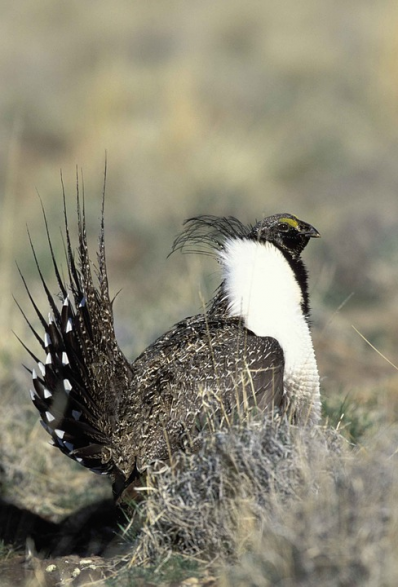Précising: sage grouse
The Grammar Bit!
Read the two paragraphs opposite. Notice how the second paragraph is a shortened version of the first paragraph. This is called a précis.
In this shortened version (bold), notice how the précis keeps the main points and order of the longer text, but reduces it to approximately one third of its original length. The word précis comes from the French, meaning precise.
Précising is different to note-making – a skill that you will be very familiar with now that you are in Year 6. Discuss with your talk partner what you think the main differences are and when précising might be used instead of note-making.
With a partner, discuss how the précis opposite demonstrates the following aspects of précis writing:
- It is much shorter – ideally about 1/3 the length of the original text.
- It removes all unnecessary information and words.
- It communicates the main ideas of the original text.
- It shows the author has a good understanding of the original text.
- It is written in complete sentences, which are grammatically accurate.
Scintillating Sentences
Original Text
Sage grouse inhabit a vast area of grassland in the plains of America. Their diet includes sagebrush plants and some insects. In the winter, most of the sage grouse’s diet is made up of the leaves and shoots of the sagebrush. In the spring, it will also eat weeds and grasses. The males of the species are physically brighter than the females: they have an eye-catching fan of tail feathers and a luxurious white chest plumage. However, they also have a unique method of attracting the attention of the females using brightly-coloured air sacs, which they inflate to create a sound that can carry through the air over a distance of up to 3 kilometres. (114 words)
Précised Version
Sage grouse inhabit American grasslands. They eat sagebrush, insects, grasses and weeds. The males attract the females with their white chest, tail feathers and sounds (made with inflated air sacs) that can carry 3 kilometres. (31 words)

Did you know?
A group of grouse has many collective nouns, including a ‘chorus’, ‘covey’, ‘drumming’, ‘grumbling’, and ‘leash’ of grouse.

 Sign in
Sign in